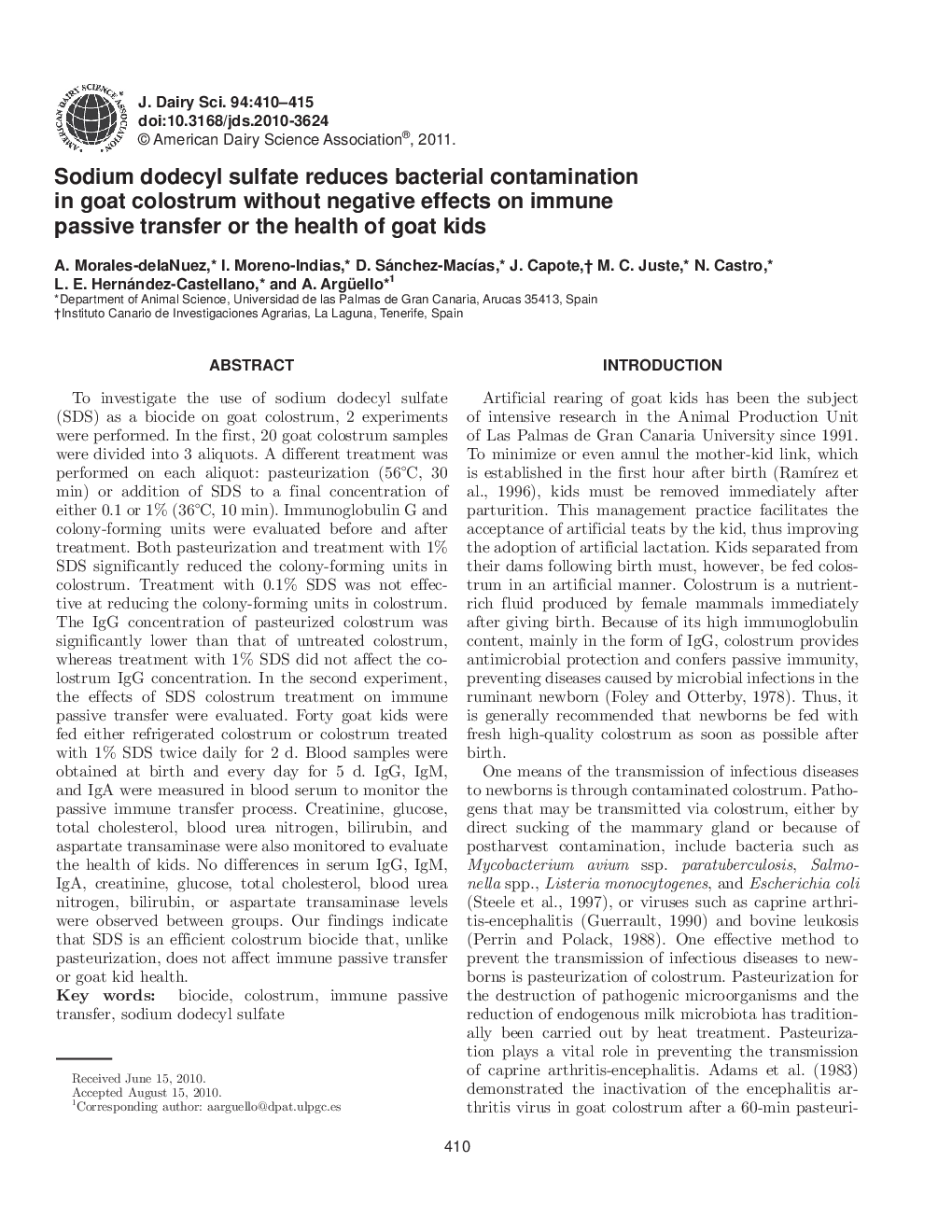| Article ID | Journal | Published Year | Pages | File Type |
|---|---|---|---|---|
| 10980769 | Journal of Dairy Science | 2011 | 6 Pages |
Abstract
To investigate the use of sodium dodecyl sulfate (SDS) as a biocide on goat colostrum, 2 experiments were performed. In the first, 20 goat colostrum samples were divided into 3 aliquots. A different treatment was performed on each aliquot: pasteurization (56°C, 30 min) or addition of SDS to a final concentration of either 0.1 or 1% (36°C, 10 min). Immunoglobulin G and colony-forming units were evaluated before and after treatment. Both pasteurization and treatment with 1% SDS significantly reduced the colony-forming units in colostrum. Treatment with 0.1% SDS was not effective at reducing the colony-forming units in colostrum. The IgG concentration of pasteurized colostrum was significantly lower than that of untreated colostrum, whereas treatment with 1% SDS did not affect the colostrum IgG concentration. In the second experiment, the effects of SDS colostrum treatment on immune passive transfer were evaluated. Forty goat kids were fed either refrigerated colostrum or colostrum treated with 1% SDS twice daily for 2 d. Blood samples were obtained at birth and every day for 5 d. IgG, IgM, and IgA were measured in blood serum to monitor the passive immune transfer process. Creatinine, glucose, total cholesterol, blood urea nitrogen, bilirubin, and aspartate transaminase were also monitored to evaluate the health of kids. No differences in serum IgG, IgM, IgA, creatinine, glucose, total cholesterol, blood urea nitrogen, bilirubin, or aspartate transaminase levels were observed between groups. Our findings indicate that SDS is an efficient colostrum biocide that, unlike pasteurization, does not affect immune passive transfer or goat kid health.
Related Topics
Life Sciences
Agricultural and Biological Sciences
Animal Science and Zoology
Authors
A. Morales-delaNuez, I. Moreno-Indias, D. Sánchez-MacÃas, J. Capote, M.C. Juste, N. Castro, L.E. Hernández-Castellano, A. Argüello,
